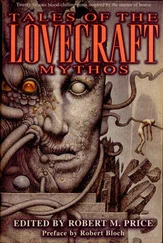Robert Pirsig - Lila. An Inquiry Into Morals
Здесь есть возможность читать онлайн «Robert Pirsig - Lila. An Inquiry Into Morals» весь текст электронной книги совершенно бесплатно (целиком полную версию без сокращений). В некоторых случаях можно слушать аудио, скачать через торрент в формате fb2 и присутствует краткое содержание. Жанр: Современная проза, на английском языке. Описание произведения, (предисловие) а так же отзывы посетителей доступны на портале библиотеки ЛибКат.
- Название:Lila. An Inquiry Into Morals
- Автор:
- Жанр:
- Год:неизвестен
- ISBN:нет данных
- Рейтинг книги:3 / 5. Голосов: 1
-
Избранное:Добавить в избранное
- Отзывы:
-
Ваша оценка:
- 60
- 1
- 2
- 3
- 4
- 5
Lila. An Inquiry Into Morals: краткое содержание, описание и аннотация
Предлагаем к чтению аннотацию, описание, краткое содержание или предисловие (зависит от того, что написал сам автор книги «Lila. An Inquiry Into Morals»). Если вы не нашли необходимую информацию о книге — напишите в комментариях, мы постараемся отыскать её.
Lila. An Inquiry Into Morals — читать онлайн бесплатно полную книгу (весь текст) целиком
Ниже представлен текст книги, разбитый по страницам. Система сохранения места последней прочитанной страницы, позволяет с удобством читать онлайн бесплатно книгу «Lila. An Inquiry Into Morals», без необходимости каждый раз заново искать на чём Вы остановились. Поставьте закладку, и сможете в любой момент перейти на страницу, на которой закончили чтение.
Интервал:
Закладка:
But maybe it was a good thing that he had lost it because now, in the reconstruction of it, all sorts of new material was flooding in — so much that his main task was to get it processed before it log-jammed his head into some kind of a block that he couldn’t get out of. Now the main purpose of the slips was not to help him remember anything. It was to help him to forget it. That sounded contradictory but the purpose was to keep his head empty, to put all his ideas of the past four years on that pilot berth where he didn’t have to think of them. That was what he wanted.
There’s an old analogy to a cup of tea. If you want to drink new tea you have to get rid of the old tea that’s in your cup, otherwise your cup just overflows and you get a wet mess. Your head is like that cup. It has a limited capacity and if you want to learn something about the world you should keep your head empty in order to learn it. It’s very easy to spend your whole life swishing old tea around in your cup thinking it’s great stuff because you’ve never really tried anything new, because you could never get it in, because the old stuff prevented its entry because you were so sure the old stuff was so good, because you never really tried anything new… on and on in an endless circular pattern.
The reason Phædrus used slips rather than full-sized sheets of paper is that a card-catalog tray full of slips provides a more random access. When information is organized in small chunks that can be accessed and sequenced at random it becomes much more valuable than when you have to take it in serial form. It’s better, for example, to run a post office where the patrons have numbered boxes and can come in to access these boxes any time they please. It’s worse to have them all come in at a certain time, stand in a queue and get their mail from Joe, who has to sort through everything alphabetically each time and who has rheumatism, is going to retire in a few years, and who doesn’t care whether they like waiting or not. When any distribution is locked into a rigid sequential format it develops Joes that dictate what new changes will be allowed and what will not, and that rigidity is deadly.
Some of the slips were actually about this topic: random access and Quality. The two are closely related. Random access is at the essence of organic growth, in which cells, like post-office boxes, are relatively independent. Cities are based on random access. Democracies are founded on it. The free market system, free speech, and the growth of science are all based on it. A library is one of civilization’s most powerful tools precisely because of its card-catalog trays. Without the Dewey Decimal System allowing the number of cards in the main catalog to grow or shrink at any point the whole library would soon grow stale and useless and die.
And so while those trays certainly didn’t have much glamour they nevertheless had the hidden strength of a card catalog. They ensured that by keeping his head empty and keeping sequential formatting to a minimum, no fresh new unexplored idea would be forgotten or shut out. There were no ideological Joes to kill an idea because it didn’t fit into what he was already thinking.
Because he didn’t pre-judge the fittingness of new ideas or try to put them in order but just let them flow in, these ideas sometimes came in so fast he couldn’t write them down quickly enough. The subject matter, a whole metaphysics, was so enormous the flow had turned into an avalanche. The slips kept expanding in every direction so that the more he saw the more he saw there was to see. It was like a Venturi effect which pulled ideas into it endlessly, on and on. He saw there were a million things to read, a million leads to follow… too much… too much… and not enough time in one life to get it all together. Snowed under.
There’d been times when an urge surfaced to take the slips, pile by pile, and file them into the door of the coal stove on top of the glowing charcoal briquets and then close the door and listen to the cricking of the metal as they turned into smoke. Then it would all be gone and he would be really free again.
Except that he wouldn’t be free. It would still be there in his mind to do.
So he spent most of his time submerged in chaos, knowing that the longer he put off setting into a fixed organization the more difficult it would become. But he felt sure that sooner or later some sort of a format would have to emerge and it would be a better one for his having waited.
Eventually this belief was justified. Periods started to appear when he just sat there for hours and no slips came in — and this, he saw, was at last the time for organizing. He was pleased to discover that the slips themselves made this organizing much easier. Instead of asking Where does this metaphysics of the universe begin? — which was a virtually impossible question -all he had to do was just hold up two slips and ask, Which comes first? This was easy and he always seemed to get an answer. Then he would take a third slip, compare it with the first one, and ask again, Which comes first? If the new slip came after the first one he compared it with the second. Then he had a three-slip organization. He kept repeating the process with slip after slip.
Before long he noticed certain categories emerging. The earlier slips began to merge about a common topic and later slips about a different topic. When enough slips merged about a single topic so that he got a feeling it would be permanent he took an index card of the same size as the slips, attached a transparent plastic index tab to it, wrote the name of the topic on a little cardboard insert that came with the tab, put it in the tab, and put the index card together with its related topic slips. The trays on the pilot berth now had about four or five hundred of these tabbed index cards.
At various times he’d tried all kinds of different things: colored plastic tabs to indicate subtopics and sub-subtopics; stars to indicate relative importance; slips split with a line to indicate both emotive and rational aspects of their subject; but all of these had increased rather than decreased confusion and he’d found it clearer to include their information elsewhere.
It was fascinating to watch this thing grow. No one that he knew had ever written a whole metaphysics before and there were no rules for doing it and no way of predicting how it would progress.
In addition to the topic categories, five other categories had emerged. Phædrus felt these were of great importance:
The first was UNASSIMILATED. This contained new ideas that interrupted what he was doing. They came in on the spur of the moment while he was organizing the other slips or sailing or working on the boat or doing something else that didn’t want to be disturbed. Normally your mind says to these ideas, Go away, I’m busy, but that attitude is deadly to Quality. The UNASSIMILATED pile helped solve the problem. He just stuck the slips there on hold until he had the time and desire to get to them.
The next non-topical category was called PROGRAM. PROGRAM slips were instructions for what to do with the rest of the slips. They kept track of the forest while he was busy thinking about individual trees. With more than ten-thousand trees that kept wanting to expand to one-hundred thousand, the PROGRAM slips were absolutely necessary to keep from getting lost.
What made them so powerful was that they too were on slips, one slip for each instruction. This meant the PROGRAM slips were random access too and could be changed and resequenced as the need arose without any difficulty. He remembered reading that John Von Neumann, an inventor of the computer, had said the single thing that makes a computer so powerful is that the program is data and can be treated like any other data. That seemed a little obscure when Phædrus had read it but now it was making sense.
Читать дальшеИнтервал:
Закладка:
Похожие книги на «Lila. An Inquiry Into Morals»
Представляем Вашему вниманию похожие книги на «Lila. An Inquiry Into Morals» списком для выбора. Мы отобрали схожую по названию и смыслу литературу в надежде предоставить читателям больше вариантов отыскать новые, интересные, ещё непрочитанные произведения.
Обсуждение, отзывы о книге «Lila. An Inquiry Into Morals» и просто собственные мнения читателей. Оставьте ваши комментарии, напишите, что Вы думаете о произведении, его смысле или главных героях. Укажите что конкретно понравилось, а что нет, и почему Вы так считаете.











